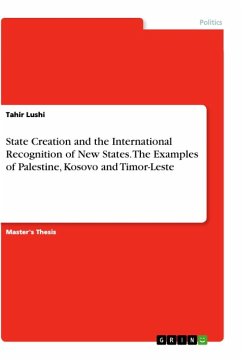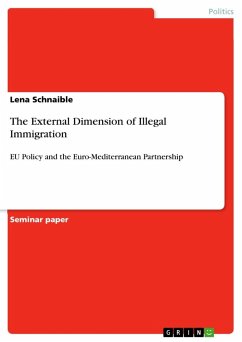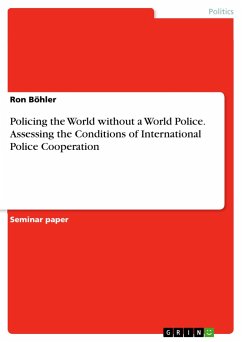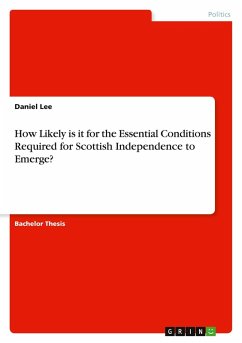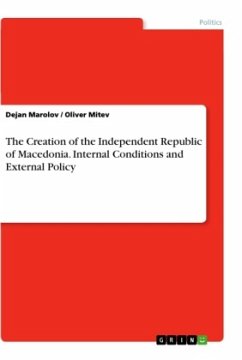
The Creation of the Independent Republic of Macedonia. Internal Conditions and External Policy

PAYBACK Punkte
0 °P sammeln!
Document from the year 2019 in the subject Politics - International Politics - Region: South East Europe, Balkans, University Goce Delchev, language: English, abstract: In this work, the authors raise several questions and dilemmas related to the process of the independence of the Republic of Macedonia. Thus, it necessarily begins with the structural reform of the former Yugoslav federation, created by the intense changes caused by liberalism and nationalist currents in the 1970s. This results in constitutional changes and substantial decentralization of the federation, with the constitution o...
Document from the year 2019 in the subject Politics - International Politics - Region: South East Europe, Balkans, University Goce Delchev, language: English, abstract: In this work, the authors raise several questions and dilemmas related to the process of the independence of the Republic of Macedonia. Thus, it necessarily begins with the structural reform of the former Yugoslav federation, created by the intense changes caused by liberalism and nationalist currents in the 1970s. This results in constitutional changes and substantial decentralization of the federation, with the constitution of 1074 becoming the owners of their own sovereignty as federal entities. This fact precisely, in the formal legal sense, will be crucial for the successful independence of the Republic of Macedonia. However, the process is influenced by various factors, from geopolitical global shifts to regional and local conflicts, and the onset of the violent disintegration of SFR Yugoslavia. Furthermore,this book deals with specific issues related to the controversy over the referendum, the status and threat of the Yugoslav People's Army presence, foreign policy relations and issues related to international recognition, the blockade by the Republic of Greece and the beginning of the name dispute, and also the dilemmas related to the accession of the Republic of Macedonia to the UN.The process of creating the independent Republic of Macedonia is parallel to all of the global processes of disintegration of the former East European one-party systems, including the former SFR Yugoslavia and the promotion of political pluralism and democracy as basic constituents of the modern societies. The Macedonian independence was established with the referendum of September 8, 1991. After this, the period of internal consolidation and the diplomatic fight for international recognition followed. The diplomatic initiatives, as well as overall relations with the EC and the US , resulted with the membership of Republic of Macedonia (under the temporary reference of the Former Yugoslav Republic of Macedonia) in United Nations.In the period that followed, as a result of the wider international intervention in former Yugoslavia and the blockade from Greece, Macedonia was in a very difficult and complex situation. Due to the so-called Name Issue, Greece imposed onside trade embargo and blockade for further integration in other international organizations and initiatives. The status quo situation was changed with Interim accord, after which the period of stabilization and establishing of relation with USA and most of EU countries followed.










